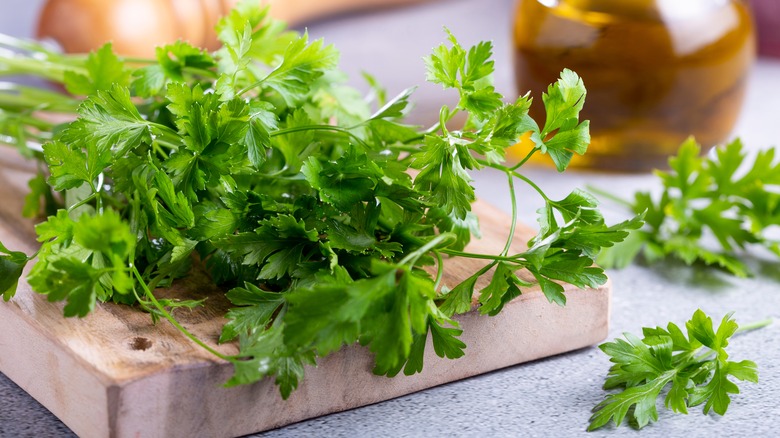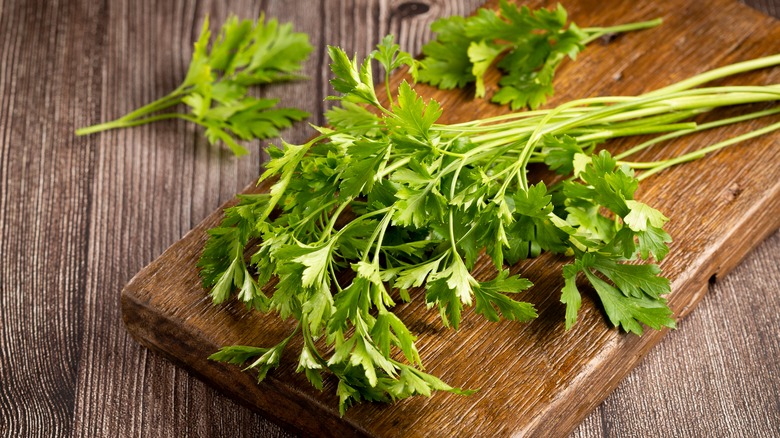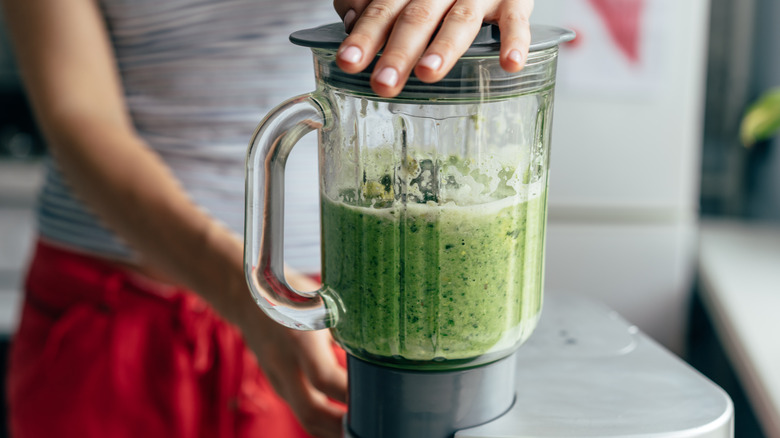The Unexpected Benefit Of Adding Parsley To Your Meals
Have you always assumed that the sole purpose of adding parsley to a dish was "for color?" As it turns out, this unassuming little herb is full of secret benefits and packs a whole lot more than a pop of green.
To be fair, the pop of color idea isn't entirely incorrect. There are actually two different kinds of parsley: the Italian flat-leaf parsley and the French curly parsley (per MasterClass). While flat-leaf parsley has a bold, herbaceous flavor that is often used to season dishes, curly parsley is most commonly used as a garnish due to its muted grassy flavor.
Taking you to flavor town isn't the only thing flat-leaf parsley can do. The herb we've long been using to make our plates prettier is actually packed with vitamins, minerals, and antioxidants that can benefit our bodies in a multitude of ways. Let's take a closer look at its nutritional value.
Parsley's nutritional content
For such a dainty little herb, parsley is extremely nutrient-dense. Two tablespoons of parsley supplies you with 12% of the Reference Daily Intake (RDI) of vitamin A, 16% of the RDI of vitamin C, and a whopping 154% of the RDI of vitamin K (per Healthline).
Vitamin A is a big deal for the body because it keeps your immunity up, your eyes sharp, and your skin clear and healthy. Having enough vitamin A in your diet is necessary, as our bodies cannot manufacture it. Vitamin K supports bone and heart health, and plays an essential role in blood clotting, which is your body's defense against extensive bleeding. Vitamin C is imperative for a happy immune system, and because of its impressive antioxidant properties, it can protect your cells from disease and cancer-causing free radicals.
Parsley also supplies the body with nutrients like magnesium, potassium, folate, iron, and calcium. These nutrients affect everything from muscle, nerve, and bone health to the production of red blood cells.
Taking advantage of parsley's health benefits
The benefits of a parsley-packed meal don't stop at the impressive nutrition label. Myricetin, a flavonoid that naturally occurs in some plants, is known for its ability to prevent skin cancer, and parsley packs one of the highest concentrations of myricetin per 100 grams (via MedicalNewsToday). A 2009 study published in Nutrition and Cancer also found that parsley has the ability to block the dangerous effects of heterocyclic amines, a cancer-causing chemical compound that is released when meat is grilled to the point of "well-done."
Healthline reports that parsley can play a role in improving blood sugar, heart, kidney, bone, and liver health. If you're not quite sure how to use parsley, Healthline recommends chopping it and adding it to your salads. You can also toss it into your daily smoothie or green juice, or use it to make a pesto with pine nuts and parmesan to put on pasta, toast, or meatballs.



